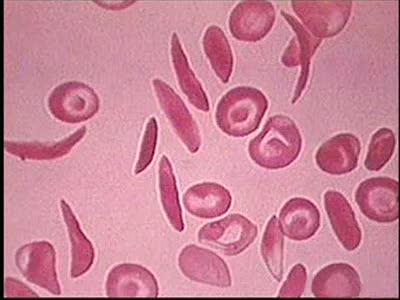Search Results
Results for: 'Blood disorder'
Introduction to Sickle Cell Anemia
By: Administrator, Views: 10076
Sickle cell anemia (sickle cell disease) is a disorder of the blood caused by an inherited abnormal hemoglobin (the oxygen-carrying protein within the red blood cells). The abnormal hemoglobin causes distorted (sickled appearing under a microscope) red blood cells.
Dissociative Disorders (Part 3)
By: Administrator, Views: 9534
Dissociative disorders (DD) are conditions that involve disruptions or breakdowns of memory, awareness, identity, or perception. People with dissociative disorders use dissociation as a defense mechanism, pathologically and involuntarily. Some dissociative disorders are triggered by psychological...
Dissociative Disorders (Part 2)
By: Administrator, Views: 9449
Dissociative disorders (DD) are conditions that involve disruptions or breakdowns of memory, awareness, identity, or perception. People with dissociative disorders use dissociation as a defense mechanism, pathologically and involuntarily. Some dissociative disorders are triggered by psychological...
Dissociative Disorders (Part 1)
By: Administrator, Views: 9613
Dissociative disorders (DD) are conditions that involve disruptions or breakdowns of memory, awareness, identity, or perception. People with dissociative disorders use dissociation as a defense mechanism, pathologically and involuntarily. Some dissociative disorders are triggered by psychological...
Introduction to Eating Disorders
By: Administrator, Views: 9525
An eating disorder is a mental disorder defined by abnormal eating habits that negatively affect a person's physical or mental health. They include binge eating disorder where people eat a large amount in a short period of time, anorexia nervosa where people eat very little and thus have a low bo...
Interview with Person who has Panic Attacks
By: Administrator, Views: 9668
Panic attacks are sudden periods of intense fear that may include palpitations, sweating, shaking, shortness of breath, numbness, or a feeling that something bad is going to happen. The maximum degree of symptoms occurs within minutes. Typically they last for about 30 minutes but the duration can...
By: Administrator, Views: 9913
Bipolar disorder, previously known as manic depression, is a mental disorder that causes periods of depression and periods of abnormally elevated mood. The elevated mood is significant and is known as mania or hypomania, depending on its severity, or whether symptoms of psychosis are present. Dur...
Interview with Person having Obsessive Compulsive Disorder
By: Administrator, Views: 9603
Obsessive–compulsive disorder (OCD) is a mental disorder in which a person feels the need to perform certain routines repeatedly (called "compulsions"), or has certain thoughts repeatedly (called "obsessions"). The person is unable to control either the thoughts or activities for more than a sh...
By: Administrator, Views: 10048
Autism is a developmental disorder characterized by difficulties with social interaction and communication, and by restricted and repetitive behavior. Parents usually notice signs during the first three years of their child's life. These signs often develop gradually, though some children with au...
Advertisement











